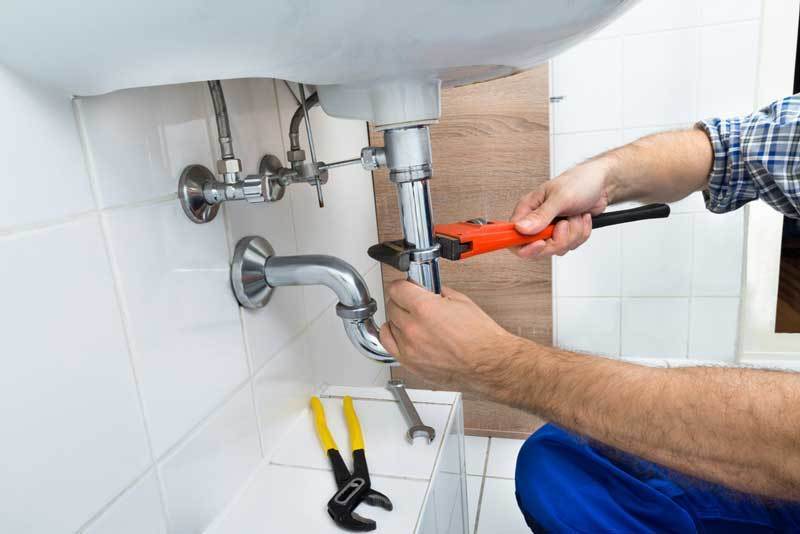There are several considerations to consider when purchasing a home for the first time, but the most pressing concern is generally money. How would you be able to buy a new home? How do you keep your household bills and insurance premiums low?
1. Begin saving as soon as possible.
The following are the highest costs to remember when saving for a house:
The amount of money you’ll need for a down payment will vary depending on the type of mortgage you want and the lender. Some traditional loans for first-time homebuyers with good credit allow for as little as a 3% down payment. However, even a small down payment can be difficult to come up with. A 3% down payment on a $300,000 home, for example, is $9,000. To get started, use a down payment calculator to determine a target and then set up automatic transfers from your checking account to your savings account.
Closing costs are the fees and taxes you pay to complete your mortgage, and they usually vary from 2% to 5% of the loan amount. You can negotiate a percentage of your closing costs with the seller, and you can save money on other expenses, including home inspections, by shopping around.
After you’ve bought a house, you’ll need money to move in. Make a budget for urgent home repairs, renovations, and furniture.
2. Think about purchasing a multifamily property to help pay off your first mortgage
Consider all of your choices when you’re first getting started as a homeowner. If you’re willing to live in an apartment, you may want to consider investing in a multifamily property that generates income. You should be able to offset your monthly mortgage payments with rental income if you plan.
Although the initial investment could be marginally more extensive than a single-family house, you’ll see an increase in income if and when you’re ready to upgrade because you’ll be able to rent out your old unit. You’ll need to make changes to your homeowner’s insurance (and landlord policy) if you make this move, but your insurance agent will walk you through the process.
Advice for multifamily property owners: Set aside 40% of your rental income for daily expenditures to keep your budget in check. Utilities, fees, and benefits can all be included.
3. Keep “Livable Space” during significant renovations to avoid paying rent.
If you’re looking for a cheap way to get into homeownership, your first home may require some work. If you want to avoid paying for a short-term rental when you renovate your new home, consider moving in before the job is finished. You will undoubtedly save money if you take this path, but you must be able to live comfortably in your new room for the duration of your ventures.
We talked with one homeowner who had just moved into their first home when transforming it from a single-family house to three-unit multifamily.
They quickly realized that having a haven inside the construction chaos where they could do whatever they needed daily was critical. They made sure they had a separate place to work, eat, and sleep from the construction zone.
Are they moving in the middle of a renovation? Here are some wise words: Set aside livable space, and the move will be much easier – and much less costly.
4. Avoid Getting Burned by Checking Contractor References
What about those renovations? It’s unlikely that you’ll be able to complete them all on your own. When you’re starting in your first home, it can be challenging to know how to hire the right contractor, but the homeowners we spoke with advised talking to your friends and neighbors to find out who is doing the type of work you need in your area.
Angie’s List and other online services now provide recommendations and money-saving advice to first-time homeowners in need of assistance. These resources were not available when many veteran homeowners began their careers in the 1980s, but many people still rely on peer advice today. Of course, as one realtor advised, checking references is always a good idea.
The realtor enlisted the help of a professional to improve the energy efficiency of their antique windows. The homeowner didn’t check the contractor’s references because everyone they talked with said he did an outstanding job.
The contractor turned out to be erratic and difficult to deal with, and he pushed the project’s schedule to its limit. The homeowners learned as the project progressed that the other contractors they’d employed were aware of the window guy’s toughness. The people who recommended him were mindful of this, but no one told them, and the homeowners had refused to inquire.
When it comes to hiring a contractor, don’t forget to call references and ask open-ended questions. When you’re billed hourly, having the right person on the job saves you time (and time is money).
Renovations are costly in and of themselves, so save money by hiring a contractor who will stick to the schedule.
5. Use good insulation to keep your energy bills down
Energy prices are always one of the biggest surprises for new homeowners. You’ll be heating and cooling a lot of square footage if you’re a first-time homeowner going up from a condominium or rental apartment. As a result, your monthly budget could be strained.
According to the homeowners we talked with, if you live in an extreme environment on either end of the thermostat, it doesn’t matter what your heating or cooling source is if your home is well-insulated.
Invest early in your homeownership to boost your home’s energy efficiency (and save money!) for decades if the first home you buy needs insulation improvements.
Reduce energy costs by ensuring that your home is well-insulated.
6. Save Money by Conserving Water
One of the best money-saving suggestions for first-time homebuyers? Water should be conserved.
Water management at home entails more than just turning off the faucet when brushing your teeth. A running toilet and a leaking faucet are two of the worst water wasters.
Consider that the average homeowner’s water bill is $150 per quarter (roughly $600 per year). If you have a working toilet, your bill could be more than $400. That isn’t a joke.
Water-saving advice for homeowners: To save money on water, it’s crucial to have good faucets that don’t leak and toilets that don’t run. Keep the plumbing in good working order.
7. Make Repairs before Problems Get More Expensive
When it comes to home repairs, it’s difficult to imagine a situation that will resolve itself. Roots displacing the front walk will continue to do so, and a leaking roof will not repair itself. The need for home repairs is only going to get worse over time.
To follow the water-saving advice: If you have an inefficient old toilet that needs a plumber’s attention every other month, you’ll be adding up the cost of maintenance, which averages $220, on top of the cost of wasted water. You have the option of paying for three or four repairs over a year or spending about $400 to buy and install a new toilet.
It’s the equivalent of walking into the kitchen, turning on the faucet, and leaving it running for days if you ignore a running toilet. It’s just not a good idea. A new low-flow bathroom will help you save money by contributing to your water conservation efforts.
Consider the cost of leaving something is broken in its current state for a month. Extend it for a year to see how much it would cost you to wait.
When you can, save money on electricity because those bills can add up quickly.
8. Keep your heating source going to avoid a costly replacement.
Your heating and cooling systems are essential components of your home’s machinery. They’re also not cheap.
Maintain your big home appliances regularly, whether you have a swamp cooler or a propane furnace.
It can be as easy as changing a filter for certain appliances, but many home appliances must be serviced regularly to remain under warranty.
Hot tip: Keep your big household appliances serviced regularly. If these things get damaged, there is no cost-effective way to replace them, but you can extend their life by keeping them in good condition.
9. Minimize the household’s liabilities
Don’t put off home repairs. If you’re trying to save money for something significant, this message might be challenging to accept, but it’s better not to leave a broken banister in place for more than a day.
This advice can be used both inside and outside the house: To minimize the chances of someone tripping or falling on your home, keep your steps and walkways up to code. If these areas do not comply with municipal laws, you will be forced to upgrade them or lose your homeowner’s insurance policy.
A mortgage loan servicing professional with inside knowledge of the insurance industry, for example, described how her homeowner’s insurance firm once conducted a surprise outside inspection of her house. A tiny staircase led from the living room’s French doors to a patio behind the garage, which the insurance agent discovered. Unfortunately, there was no railing on these stairs, so they were not up to standards.
Because of the possibility of personal liability, the insurer called her and threatened to cancel her homeowner’s policy if she didn’t fix the staircase. She was glad to resolve the issue, but she said it made her realize how important it is to keep her house in good repair to meet insurance requirements.
Keep your home up to code and double-check that your homeowner’s policy covers the features you have installed.
Staying on top of home maintenance will help you save money.
When you’re a first-time homeowner, it may feel like staying on top of all the items that need upkeep in any given month of the year requires superhuman organization skills. Experienced homeowners, on the other hand, realize that it gets easier with time. You will find it easier to complete your annual chores if you build and monitor a home maintenance schedule from the start.
There will always be projects on deck and replacements to save up for, but the less maintenance you defer, the fewer surprises you’ll have along the way to becoming a veteran homeowner yourself.
Houston Premium Homes, We’re By Your Side — No Matter What.
The Houston real estate market is moving — and if you’re ready, you can too.
The Houston Premium Homes family has earned its reputation as Houston’s Top real estate team by always putting our clients’ interests first and making the sale process simpler to navigate at every step of the way. Your Houston Premium Homes real estate agent is your trusted advisor and buying/selling specialist and will relieve you of the burden by handling all the people and moving parts to ensure you get the results you want. Houston Premium Homes Realty Group is a one-stop-shop real estate business and is just part of the reason why so much care and attention is emphasized with each and every client.

